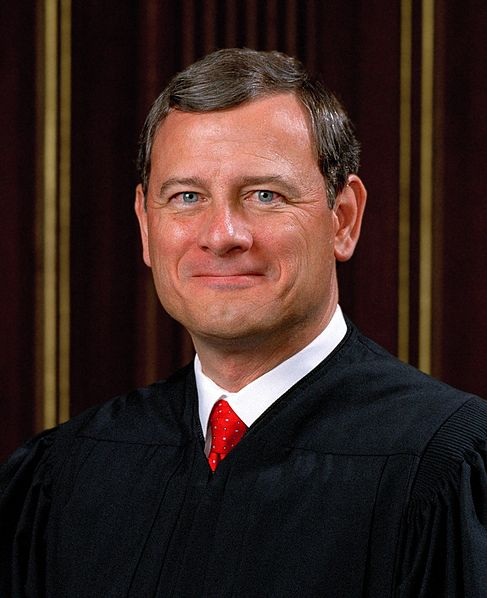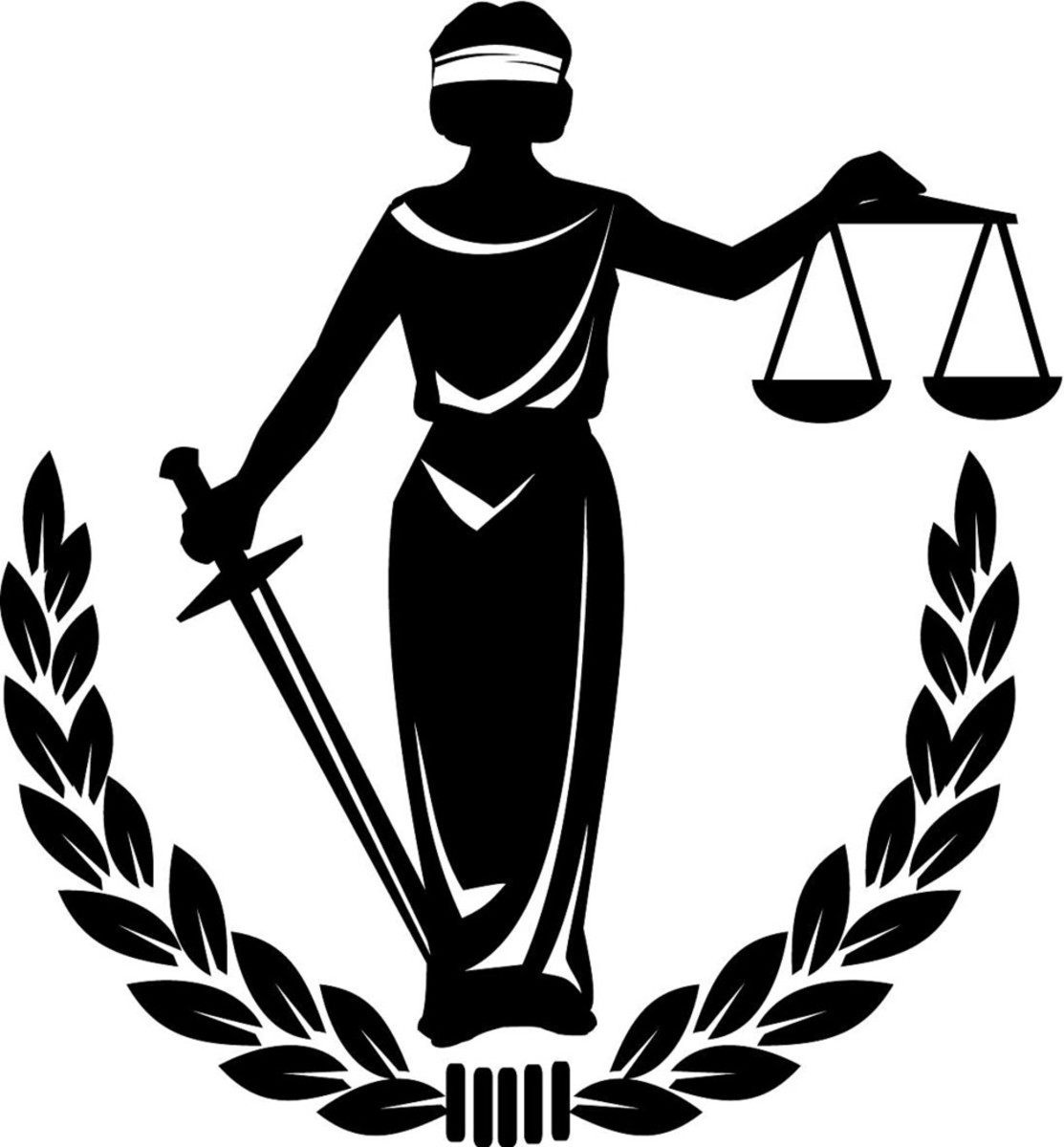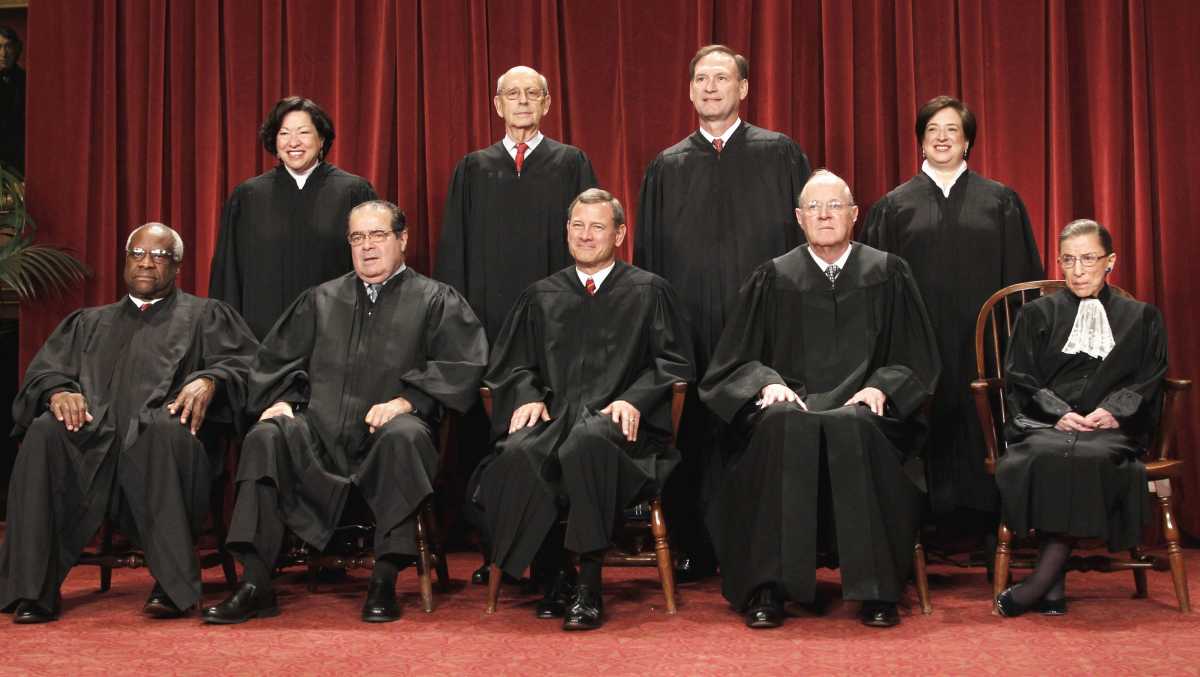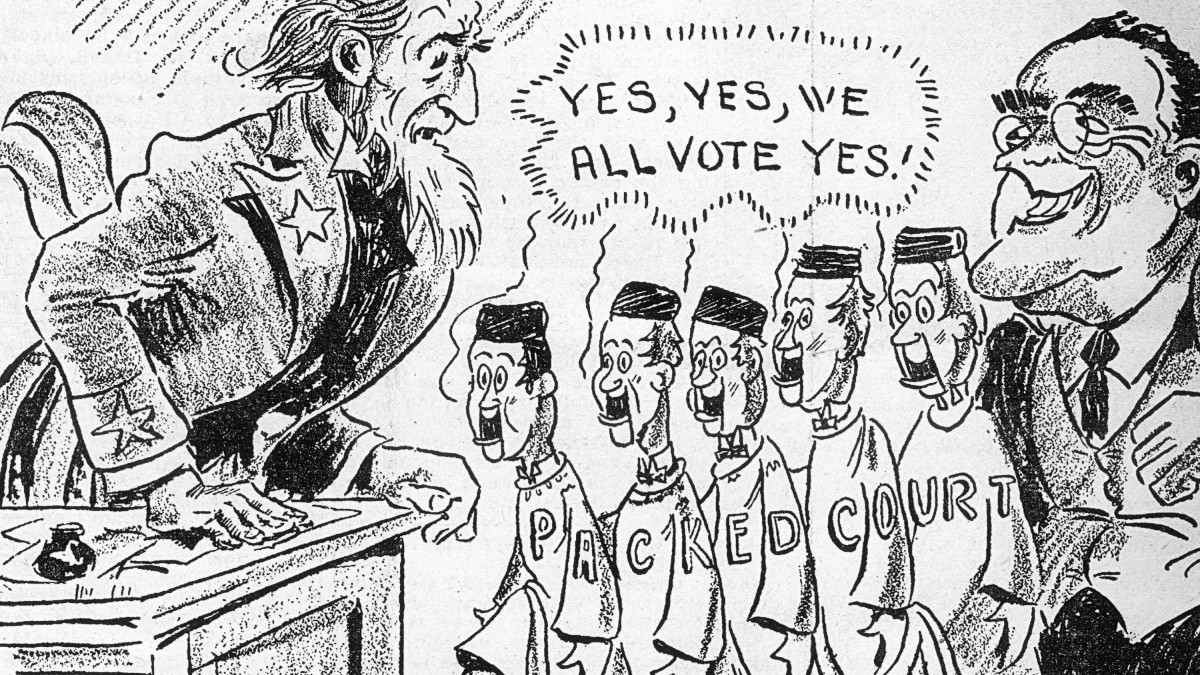Supreme Court Decision Did Not Rule That ObamaCare is Constitutional
Millions Disappointed by the Supreme Court's Affordable Care Act Decision
Like millions of other Americans, I was initially disappointed with the Supreme Court’s Patient Protection and Affordable Care Act, commonly known as ObamaCare, ruling.
I still think that this law is one of the worst pieces of socialist legislation in American history and want to see it repealed as soon as possible.
However, after reading the Supreme Court’s majority opinion written by Chief Justice Roberts, I feel that the June 28, 2012 decision upholding much of the ObamaCare legislation was more of a victory small government conservatives than it was for the President and his far left allies.

A Chief Justice Will Sometimes Change Sides in Order to Influence Writing of Decision
I was initially surprised to learn that Chief Justice Roberts was the fifth vote in this 5 to 4 decision not to declare ObamaCare unconstitutional.
However, then I remembered a remark by a news commentator during the May session when the Court heard arguments for and against the law.
This commentator remarked that in the past, Chief Justices of the Court have sometimes joined the majority even though they disagreed with the majority’s conclusion on the case.
This is because when the Chief Justice is in the majority he is allowed to select who will write the opinion for the Court thereby mitigating the damage somewhat through the wording of the decision.
In this case Chief Justice Roberts joined the four liberal justices to give them a majority and then selected himself to write the Court’s decision.
Defining the Word "Commerce"
I believe that this switching of ideological sides will be seen as a wise tactical move in the long war between those seeking to preserve the limited government principles enshrined in our Constitution and those seeking to transform our nation into a European style social welfare state with an all powerful central government.
As they forced the law through Congress, Democrats in the House and Senate along with their allies in the media insisted that the individual mandate and other sections that appeared unconstitutional could be justified under the Constitution’s commerce clause (which reads: To regulate Commerce with foreign Nations, and among the several States, and with the Indian Tribes; and is found in Article I, Section 8).
For most people, the wording of this clause refers to the regulation of trade or movement of goods and services between the U.S. and foreign nations, between states and between the United States and neighboring Indian tribes within our borders.
The Roosevelt Era Case of Wickard vs Filburn
Over the years those favoring big government have stretched the meaning of commerce to the point where it can refer to almost any economic activity progressive politicians want to regulate. The most ridiculous being the 1942 Supreme Court decision known as Wickard vs Filburn.
In this case an Ohio farmer, Roscoe Filburn, was fined $117.11 by the Department of Agriculture for violating the 1938 Agricultural Adjustment Act (AAA) when he grew more wheat than the government allowed.
Filburn refused to pay the fine on the grounds that he had limited his sale of wheat to the amount legally allowed and had kept the rest on his farm where he used it to feed his cows and chickens as well as grinding some into flour for use by his family.
The case went to the Supreme Court, where the court ruled in the government’s favor arguing that had Roscoe Filburn not grown the extra wheat, he would have had to purchase in the market what he needed for his family and farm animals and some of the wheat that he would have purchased could very likely come from another state. Therefore, by growing wheat for his own use he was engaging in interstate commerce and therefore in violation of the law.
Chief Justice Roberts Limits Stretching of Meaning of the Word "Commerce"
In his decision, Chief Justice Roberts cites writings by the founders, eighteenth century dictionary definitions of the word commerce and court cases from Chief Justice John Marshall’s time to the present in his attempts to find a limit to how far the Commerce Clause can be expanded.
This leads him to declare: As expansive as our cases construing the scope of the com-
merce power have been, they all have one thing in common: They uniformly describe the power as reaching “activity.”
While not overturning the Filburn decision, Chief Justice Roberts does, in effect, draw a line indicating a limit to the extent which the Commerce Clause can be used to expand Federal power.
In the future, the Commerce Clause can only be used to by Congress as justification for regulating activities that people are actively engaged in and not used to force people to become engaged in an activity.
In other words Congress can, under the Commerce Clause, regulate how health insurance, broccoli or other goods are sold or used but cannot require people to buy or use these goods.
This limiting of the use of the Commerce Clause will be very important long term in the effort to shrink government and keep our freedom.
Penalty vs Tax
As to creating a potential new loophole by defining penalty as called for by the ObamaCare law’s individual mandate as a tax and then upholding the constitutionality of the individual mandate by calling it a tax, that could be a problem in the future.
It should be pointed out that the ruling did not say that Congress had the authority to include the individual mandate in ObamaCare. Instead, the Court ruled out the Commerce Clause as being a basis for allowing the individual mandate on Constitutional grounds.
In writing the Court’s Opinion in the case, the Chief Justice distinguishes between penalties and taxes by first stating:
In distinguishing penalties from taxes, this Court has explained that “if the concept of penalty means anything, it means punishment for an unlawful act or omission.”
He then goes on to state:
While the individual mandate clearly aims to induce the purchase of health insurance, it need not be read to declare that failing to do so is unlawful.
In addition to this, it is up to the Internal Revenue Service to enforce and collect monies due by people who choose not to purchase insurance.
Based upon the fact that the law does not make it illegal for a person not to purchase health insurance and the fact that the IRS is responsible for the collection of the fee due for not purchasing health insurance, the Chief Justice concludes that Congress intended this to be a tax.
Court Did NOT Rule that the Individual Mandate or ObamaCare Law Was Constitutonal
While somewhat broad and open to interpretation, there are some limits to what types of things can be included under the Congress’s power to tax.
Whether this constitutes rewriting the ObamaCare law by the Chief Justice or not, I cannot say.
However, it doesn’t mean that the individual mandate has passed Constitutional muster because the Court’s majority opinion then concludes that, because the individual mandate is a tax, there are no grounds for the plaintiffs to bring the case before the Court at this time.
This is because the Anti-Injunction Act, which was passed by Congress in 1867, prevents anyone from bringing a case against a Federal tax before they have paid the tax.
Since Congress didn’t schedule the individual mandate to take effect until 2014 (conveniently after the 2012 Presidential election) the Court can’t rule on the individual mandate until after someone refuses to purchase health insurance, pays the tax and then sues.
At this point that person can bring a suit challenging the Constitutionality of the mandate and the government will have to prove that it has the power to enact such a tax.
Throughout the Case the President's Lawyers Called Mandate a Tax
It should also be noted that, despite President Obama and some Democratic members Congress insisting that the individual mandate is not a tax, Chief Justice Roberts is not the first to use the power of Congress to levy taxes as justification for the law.
Immediately following the passage of the legislation, some Democratic members of Congress suddenly became concerned that opponents might be right about the Commerce Clause not being applicable.
I remember news reports of Congressional supporters of the Act making the case that it could also be justified under Congress's power to tax.
Further, while insisting, with a straight face, to the public that the individual mandate was not a tax, President Obama did allow the lawyers for the government to argue in the lower courts and the Supreme Court that if the law couldn’t be justified under the Commerce Clause, it could still pass Constitutional muster under Congress's’ power to levy taxes.
This was Not a Case of Judicial Activism
Despite charges of judicial activism, reading this decision makes it clear that Chief Justice Roberts is anything but a judicial activist.
At the start of the opinion the Chief Justice states:
We do not consider whether the Act embodies sound policies. That judgment is entrusted
to the Nation’s elected leaders. We ask only whether Congress has the power under the Constitution to enact the challenged provisions.
In other words, the Court’s job is not to decide whether a law is good or bad policy. Instead its only job in reviewing laws passed by Congress is to determine whether Congress has the power under the Constitution to enact the law.
Congress Must Take Responsibility for its Actions
However, I see two big problems with Justice Roberts’ view that the Court should defer to Congress and try to find ways to interpret a law as meeting the requirements of the Constitution.
The first is the fact in recent years liberal Democrats and their media allies not only often appear to have little interest in the Constitution but during the 111th Congress (Jan. 2009 - Jan 2011) some Democratic members of Congress openly bragged in the press that the Constitutionality of their legislation was the Court’s concern, not theirs.
The other problem is the habit of members of both parties hiding their actions in complex pieces of legislation that run to thousands of pages and then voting without first bothering to read what they are voting on.
How Progressives in Congress Make Laws
The ObamaCare legislation is a perfect example of this as one only has to remember House Speaker Nancy Pelosi in a press conference saying, but we have to pass the bill so you can find out what’s in it. This is the voice of a ruler issuing a command to her subjects, not an elected public servant.
The individual mandate itself is another example of elected officials contempt for the citizens of this nation. During the long fight over passage, critics of the legislation consistently pointed out that the individual mandate was a tax.
But the President and his supporters in Congress repeatedly denied that it was a tax. To this day, even after instructing his Solicitor General to argue before the Court that the mandate was a tax and the Court accepting that argument, President Obama continues to insist it is not a tax.
Links to My Other Hubs on Healthcare Issues
- Mandatory Auto Insurance is Not the Same as Obama Care Mandatory Medical Insurance
The individual mandate in the ObamaCare law is not the same as state mandatory auto insurance laws. Mandatory auto insurance is intended to protect victims of auto accidents - not the insured - while the individual mandate is to protect the insured. - Judge Finds ObamaCare Unconstitutional
Decision of District Court Judge Roger Vinson provides an understandable explanation as to why the ObamaCare individual mandate is unconstitutional and why without the mandate the law cannot be sustained.
It is Up to the People to Take Responsibility
However, Chief Justice Roberts, in the Court’s Decision, makes it very clear where, under the Constitution, ultimate responsibility lies here, stating:
Members of this Court are vested with the authority to interpret the law; we possess neither the expertise nor the prerogative to make policy judgments. Those decisions are entrusted to our Nation’s elected leaders, who can be thrown out of office if the people disagree with them (emphasis is mine). It is not our job to protect the people from the consequences of their political choices.
Unlike modern progressives in politics and the media who believe that the people of this nation are incapable of managing their lives and therefore need the benevolent guidance of the political class in Washington, our Founding Fathers believed that we were a free people capable of making our own decisions and ruling ourselves.







![Gun Rights: Not All Firearms Are Constitutionally Protected As Some Would Have You Believe. [278*3]](https://usercontent2.hubstatic.com/12935107_f120.jpg)
